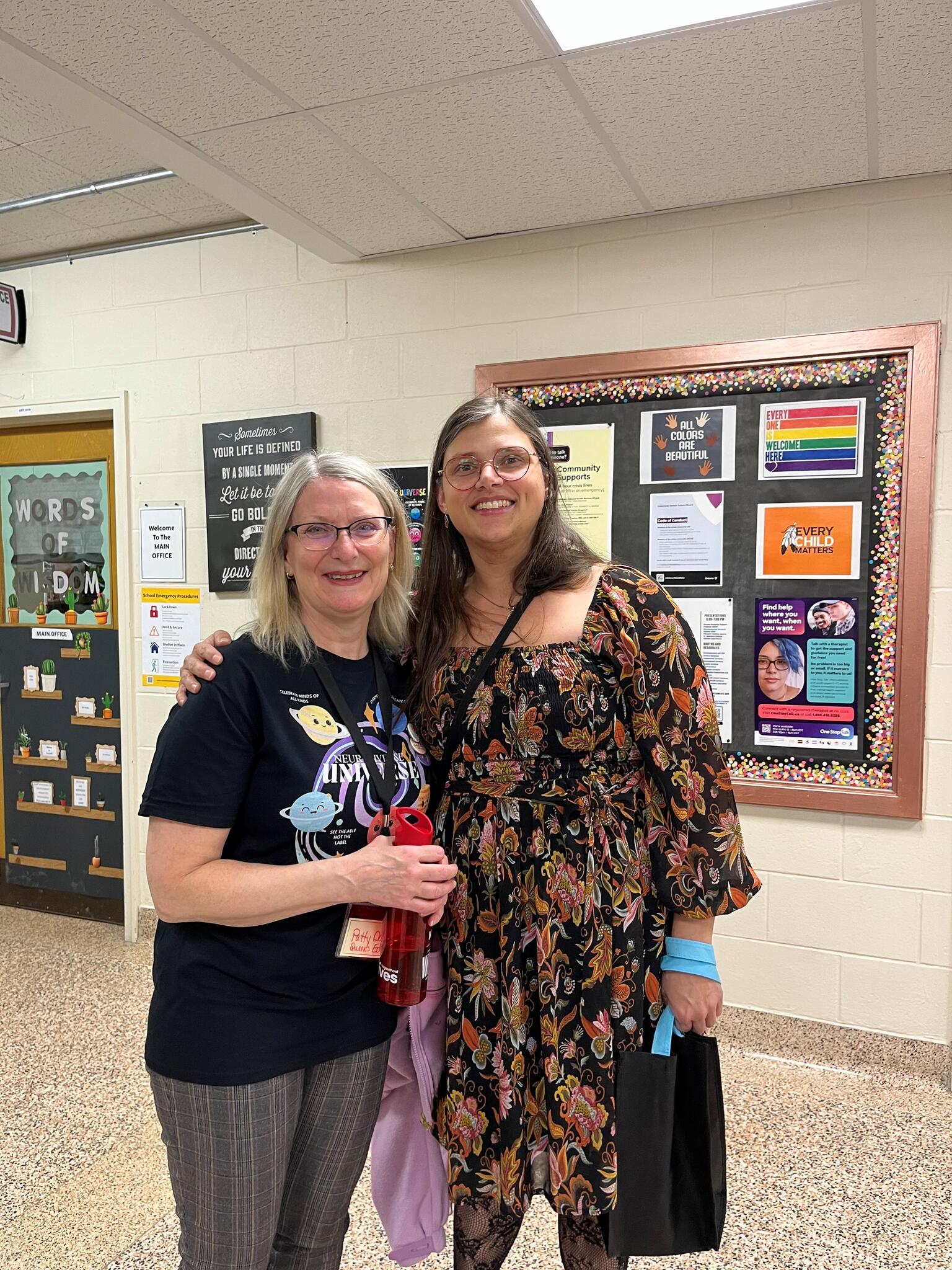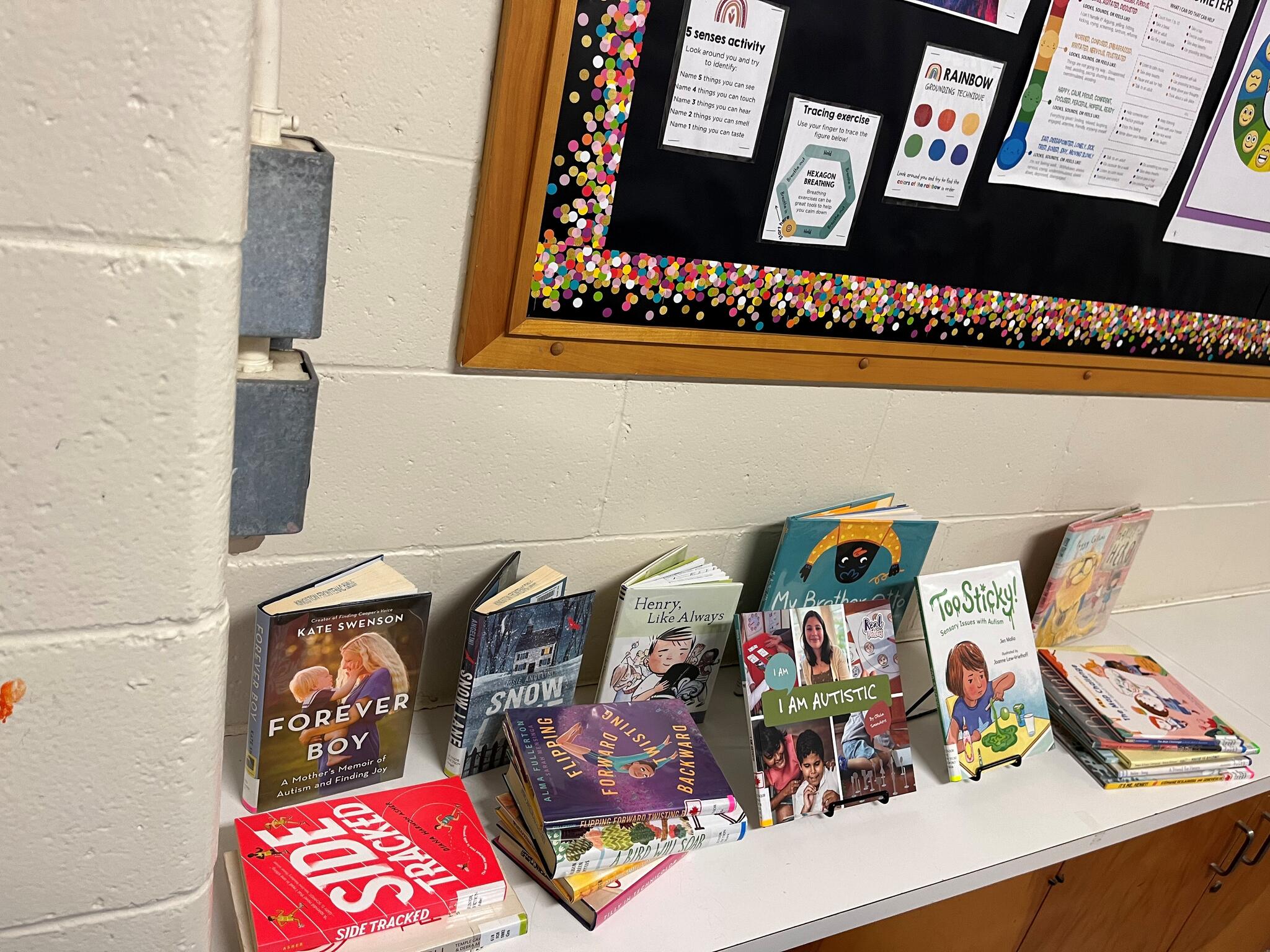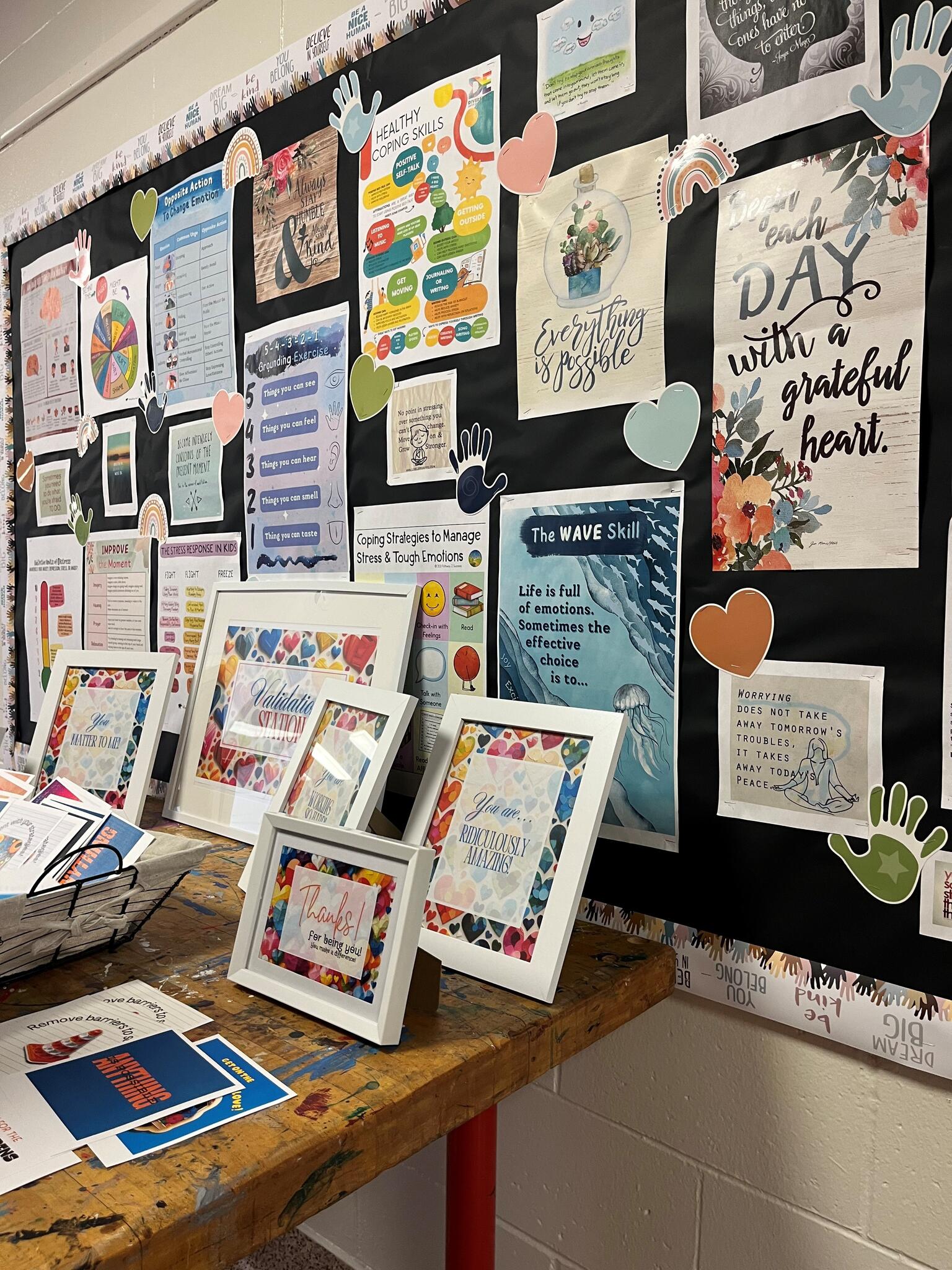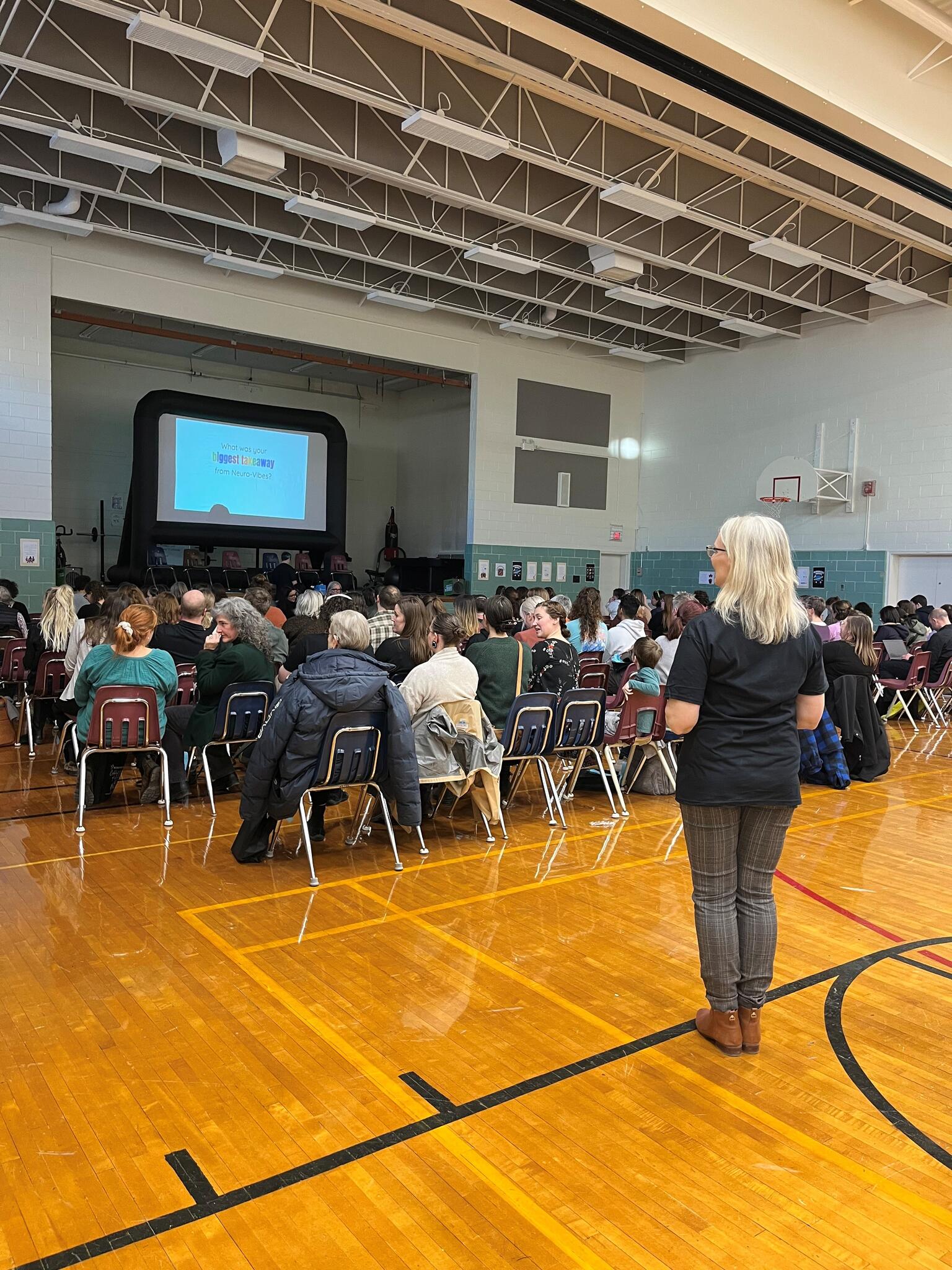The Limestone District School Board (LDSB), in collaboration with The Centre for Community Engagement and Social Change and Queen's University Faculty of Education and the extraordinary efforts of Dr. Patty Douglas, Dr. Ian Matheson and several talented and passionate graduate students, hosted Neuro-Vibes 2025 on April 3 at the Katarokwi Learning Centre. This annual event, dedicated to fostering understanding and support for neurodiversity in education, transformed the venue into a vibrant hub of celebration and advocacy.

Unlike the cold January evening of the previous year, this year's event was bathed in warm sunshine, mirroring the bright and joyful atmosphere inside. The halls of the Katarokwi Learning Centre were vibrant with excitement as over 200 attendees, including educators, students, administrators, community members, and researchers, explored the diverse offerings from numerous vendors, community partners, and programs that celebrate the wonder of neurodiversity.
A riot of colour and joy filled the space. Thoughtful sticker stations, a button-making machine, and colourful, inspirational signs adorned the walls, creating an environment of inclusivity. Upstairs, art and handmade vendors showcased their talents, receiving enthusiastic appreciation. Sensory activities and quiet spaces provided respite from the bustling crowds, while a photo booth captured moments of connection and celebration. Even the auditorium featured stationary bikes at the back, allowing for movement during the presentations.

From the moment attendees were welcomed inside, offered a tote bag and a raffle ticket, it was clear that Neuro-Vibes 2025 was designed to celebrate neurodivergent minds. Even the raffle prizes were thoughtfully curated - a weighted hoodie with stress balls sewn into the sleaves was the hot item! This wasn't about fitting individuals into pre-existing molds; it was about creating a space where everyone could be their authentic selves.
Dr. Patty Douglas and her team continue to challenge the traditional narrative that seeks to "fix" neurodivergent individuals. Instead, they champion a vision of education that adapts to diverse learning styles, celebrating the unique strengths and perspectives that neurodiversity brings. The focus shifted from deficit-based thinking to an affirmation of inherent worth and value.

The auditorium was packed for a powerful panel discussion featuring four brave and inspiring panelists who shared their lived experiences. A current LDSB student, a teacher who navigated their own neurodivergent challenges in school, a parent advocating tirelessly for their child, and an engineer reflecting on their career journey all offered deeply personal and insightful perspectives.
One particularly captivating and emotional moment came when the parent panelist shared a transformative experience from a research collaboration at Universidad Técnica del Norte in Ecuador. There, educators spoke of asking parents for "permission to fall in love with their child" when beginning to work with a student with exceptionalities. This powerful sentiment resonated deeply, highlighting the profound impact of approaching education with love and empathy, rather than assumptions and misconceptions.

This quote served as a powerful anchor for the event's central theme: the urgent need to reframe neurodivergence as something to celebrate, not pathologize. It underscored the importance of creating educational environments and societal structures that embrace and support individuals in their authentic selves, rather than expecting them to conform to rigid, often exclusionary norms.
The success of Neuro-Vibes 2025 affirms that the work of reframing neurodiversity is essential and ongoing. Neurodiversity is not a trend; it's a fundamental aspect of human existence. By celebrating its richness and rejecting stereotypes and misconceptions everyone can play a part in fostering inclusive environments, in all aspects of our lives.
A shared feeling of belonging is more powerful that you may think. The writing on the wall (and stickers) was clear: “Anything is possible”. The work is ceaseless and often exhausting, it can’t all be as joyful and full of colour and wonder as Neuro-vibes, but events like this help those dedicated to this work to reenergize and recommit.